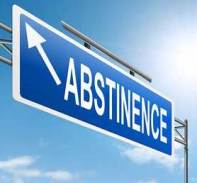Abstinence Versus Recovery
Abstinence versus recovery. If you have a loved one who's stopped gambling, whether after attending GA meetings, or undergoing in-patient or out-patient care, this will likely be a question that's on your mind regularly, if not daily. All of us have heard stories of people who have abstained from gambling for many years, and even multiple decades, only to ultimately relapse. Whether it's a small relapse, or a larger recurrence than ever before isn't really
all that
important. It's that looming question that can haunt even
when we
don't see any of the obvious signs.
really
all that
important. It's that looming question that can haunt even
when we
don't see any of the obvious signs.Dr. Mitchell E. Wallick (Ph.D. CAP CAGC), Executive Director of Professional Training Association @ CARE, was kind enough to provide the following article regarding the topic of abstinence versus recovery. While it doesn't provide a black and white means of knowing whether our loved ones are in a stage of abstinence or real recovery, it does provide an insightful, and very logical perspective. Thank you Dr. Mitch!
"A question that patients and their families’ often ask is “how can I tell the difference between recovery and abstinence? “This is usually followed by “how can I tell if I, or my loved one is heading for a relapse?”
In medicine we use the terms signs and symptoms. Signs are what we can objectively see. Symptoms are what the patient tells us. We all know that part of the disease of addiction is a bending of the truth through rationalization. It is for this reason that we are unable to sometimes trust what the gambler is telling themselves and/or others. In the field of addictive diseases we tell our patients, “treat your mind like a bad neighborhood. Don’t go in there alone”.
Those suffering from the illness often begin to show the signs of relapse far before they actually relapse. The following are some signs that one can look for:
- Stop going to meetings.
- Increased financial dealings. Shopping, running up credit cards etc.
- Frequenting places where they got into trouble. (The buffets may be wonderful for the rest of us, but not for gamblers. In the field we say, if you hang around the barbershop long enough, you will without a doubt get a haircut.)
- Being stressed
- Stopping activities
- Talking about gambling
- Excessive interest in events or other things on which they gambled.
- Finding betting slips
- Unaccounted Cash
- Items missing from the home
- Unexplained absences
- Attempts to hide phone calls
- Unexplained cash withdrawals.
- Larger than usual credit card bills.
- Recovery is the return to a quality of life. This is something that the compulsive gambler must judge for themselves. Recovery is a very personal issue. While it is possible for others to clean up, the actual act of deification is one that a person must do for themselves.
- The second thing to remember is that although addiction is a disease, the individuals having the disease are responsible for managing it.
- Lies
- Manipulation
- Thefts
- Untrustworthy behaviors
One way to tell if the person is recovering is to look at actions. Absolute and complete honesty will eventually result in a return of trust.
Finally there is no such a thing as a brief relapse. SLIP stands for "Sobriety Loses Its Priority." None the less the key to recovery is to pick up the pieces and begin again.
Home
›
Abstinence vs. Recovery





New! Comments
Have your say about what you just read! Leave a comment in the box below.